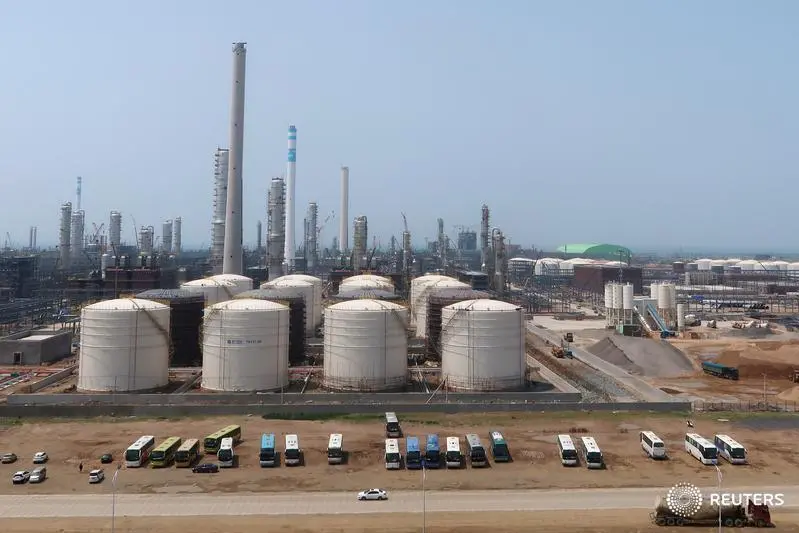PHOTO
BEIJING/SINGAPORE - China's fuel exports are likely to expand by nearly a third this year as the world's second-largest oil consumer adds new refineries that will exacerbate a supply overhang, said a unit of top oil and gas group China National Petroleum Company.
An estimated 14.74 million tonnes per year, or 295,000 barrels per day (bpd) of crude run capacity, will be added this year, bringing the country's total to 18 million bpd, CNPC's Economics and Technology Research Institute (ETRI) said in its annual industry outlook released on Friday.
That could result in fuel exports surging 31.7% to a record 54.7 million tonnes.
"Taking into account domestic demand and exports, China will have at least 160 million tonnes/year surplus in refining capacity by 2025," CNPC said.
The group also forecast China's net crude oil imports to grow 3.4% this year to a record of about 559 million tonnes, or 11.2 million bpd.
Domestic fuel demand is expected to continue its recovery from the coronavirus pandemic, said the group, which pegs gasoline use to grow 0.8% this year and aviation fuel to rise 13%, though diesel will ease 0.8%.
The research group expects China's natural gas consumption to reach 354.2 billion cubic metres (bcm) in 2021, up 8.6% on year amid increasing demand from residential heating, power generation and industrial use.
Gas imports are forecasted to rise 12.5% to 158.5 bcm this year, with pipeline gas at 55 bcm and liquefied natural gas (LNG) at 103.5 bcm.
"We expect around 100 million tonnes per annum of LNG receiving capacity to be added over 2021-2025. But such big amount of new capacity would lower the utilisation rates at LNG terminals," said Wu Minjie, senior economist at CNPC's ETRI.
Wu expects more than two third of the new capacity to come from local-government backed or private energy firms.
As of 2020, China had 22 LNG receiving terminals, with total receiving capacity of 87 million tonnes per annum. Average utilisation rates at the terminal were at 70-80%.
(tonne=7.3 barrels)
(Reporting by Muyu Xu in Beijing and Chen Aizhu in Singapore; Editing by Muralikumar Anantharaman) ((aizhu.chen@thomsonreuters.com; +65 6870 3284; Reuters Messaging: aizhu.chen.reuters.com@reuters.net))





















